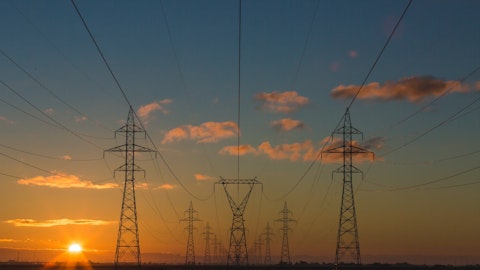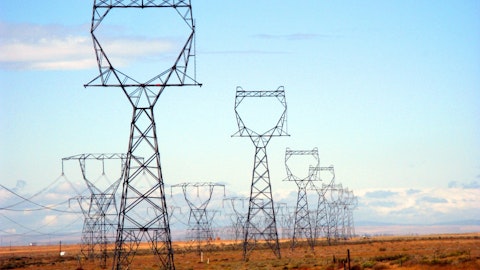Drew Marsh: I’ll start and I’ll let Rod jump in. But I think the main thing that we can do is embark on a resilience program together. And that is a big opportunity we have, filings in Louisiana and in New Orleans, and as I said we — we’re planning to do that in Texas later this year. That’s the biggest opportunity and that will move all of our stakeholders forward in terms of preparing for storms and responding more effectively to storms. So, Rod, I’ll let you…
Rod West: Yeah, and I think that’s the point. Our customers are agnostic as to whether the investment is a reliability investment or a resiliency investment, and when there is a storm and the customers are interrupted, they are experiencing the hardships of that interruption. That’s what was part of the driver for the heightened tension both in our — from the regulators as well as our investment plans in pursuing accelerated investments in resiliency because our customers had the recency of the experience with storms. And so, Drew’s point is right on point that if we can get alignment around accelerated resiliency investments, our customers will actually experience better reliability experiences as well. They are quite connected.
David Arcaro: Yeah, that makes sense. Okay, great. Thanks so much.
Drew Marsh: Thank you.
Operator: Thank you. One moment for our next question. And our next question comes from the line of Durgesh Chopra from Evercore ISI. Your question, please.
Durgesh Chopra: Hey, team. Thank you for giving me time. Hey, just…
Drew Marsh: Absolutely. Good morning.
Durgesh Chopra: Good morning, Drew. Just — just clarification. What to expect on February 2020 — February 22nd? So is the FERC actually going to put out an order where they will kind of — you have the compliance refund, will they affirm the compliance refund report? I’m just trying to kind of figure out what to look for there?
Rod West: We expect them by February 23rd if I’m hearing your question correctly. We are expecting the FERC to respond to the parties’ request for rehearing. So any substantive aspects of that is unknown to us, but our expectation is that FERC will respond to the parties’ request to have certain of those issues reheard, not necessarily a substantive ruling one way or the other.
Durgesh Chopra: I see. So if they basically say no to the rehearing, then I guess, does that clear way the path to you kind of going through other settlements and putting that to bed? Is that the right framework that I’m thinking about?
Rod West: Well, the parties will have the opportunity to appeal if they’re not satisfied with the outcome. I think from our vantage point, there were certain advantages to give FERC the opportunity to reaffirm the initial position it took, and we had some challenges with the sale-leaseback part of the order. And so, what we’re looking for out of this candidly is clarity. And we’ll wait to see what — how FERC responds in the next week to order our next steps.
Durgesh Chopra: Understood. Thank you, guys. That’s all I had. All my other questions have been answered. Thanks, again.
Drew Marsh: Excellent. Thank you.
Rod West: Thank you.
Operator: Thank you. One moment for our next question. And our next question comes from the line of Angie Storozynski from Seaport. Your question, please.





